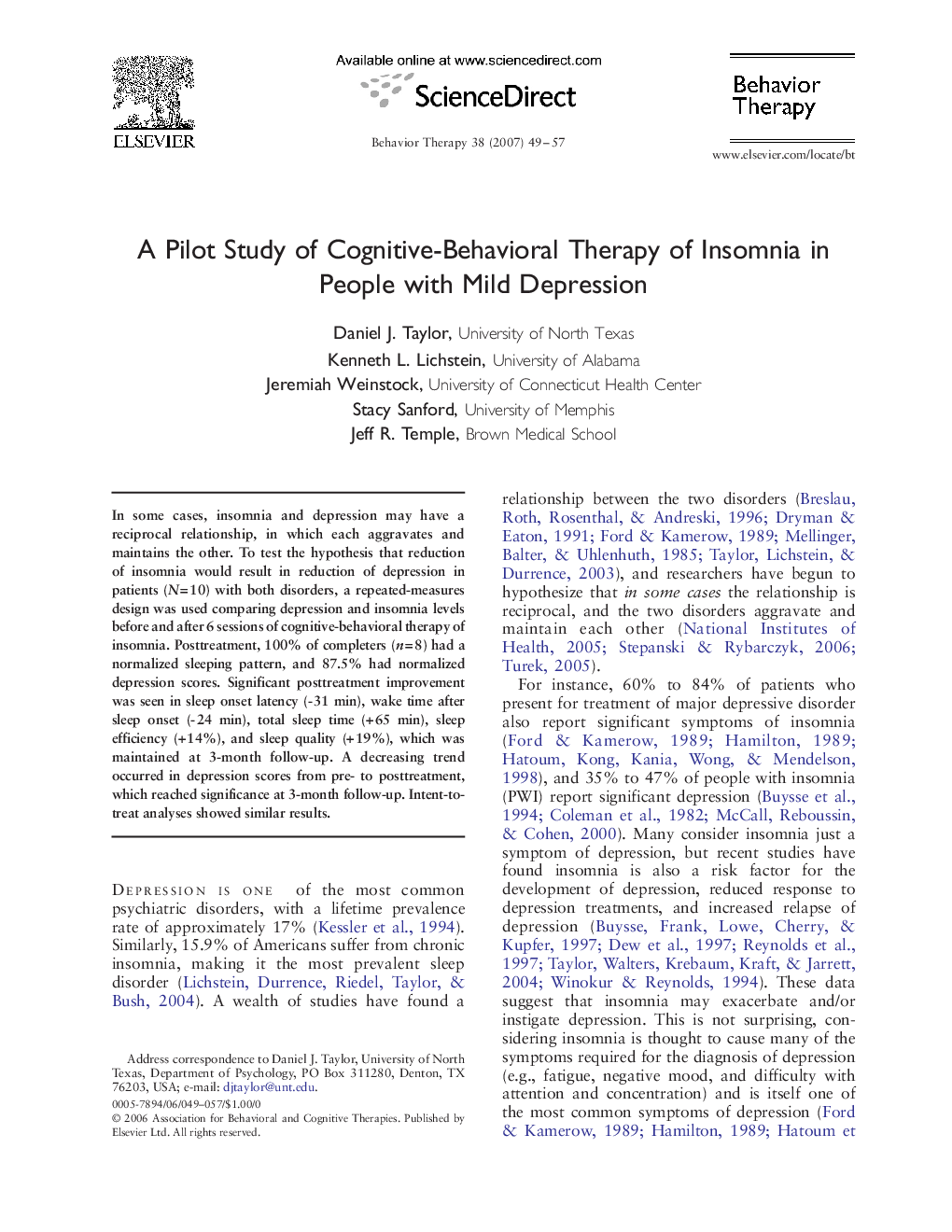| کد مقاله | کد نشریه | سال انتشار | مقاله انگلیسی | نسخه تمام متن |
|---|---|---|---|---|
| 901716 | 915903 | 2007 | 9 صفحه PDF | دانلود رایگان |

In some cases, insomnia and depression may have a reciprocal relationship, in which each aggravates and maintains the other. To test the hypothesis that reduction of insomnia would result in reduction of depression in patients (N = 10) with both disorders, a repeated-measures design was used comparing depression and insomnia levels before and after 6 sessions of cognitive-behavioral therapy of insomnia. Posttreatment, 100% of completers (n = 8) had a normalized sleeping pattern, and 87.5% had normalized depression scores. Significant posttreatment improvement was seen in sleep onset latency (- 31 min), wake time after sleep onset (- 24 min), total sleep time (+ 65 min), sleep efficiency (+ 14%), and sleep quality (+ 19%), which was maintained at 3-month follow-up. A decreasing trend occurred in depression scores from pre- to posttreatment, which reached significance at 3-month follow-up. Intent-to-treat analyses showed similar results.
Journal: Behavior Therapy - Volume 38, Issue 1, March 2007, Pages 49–57